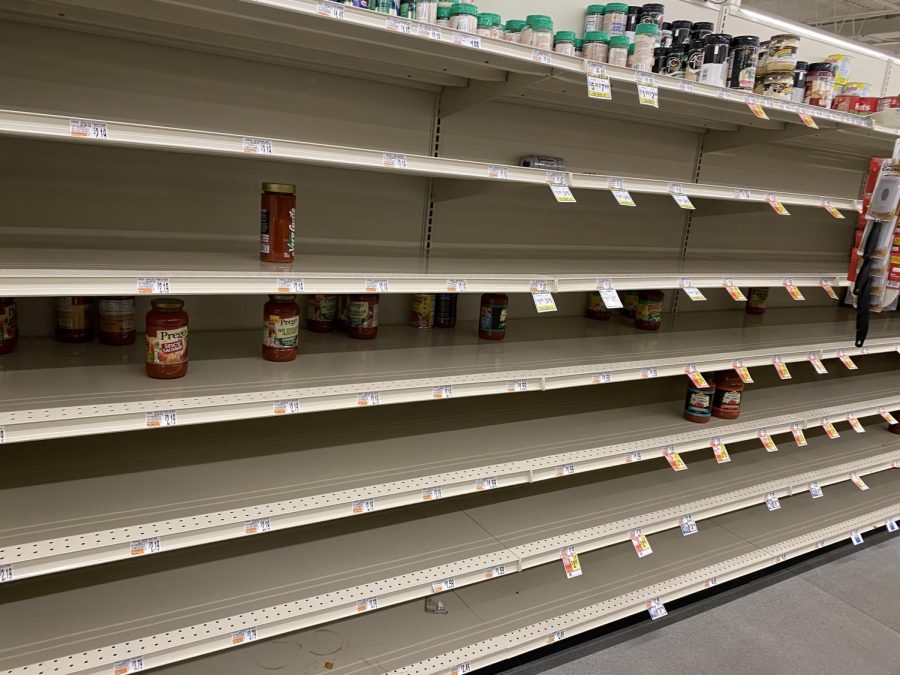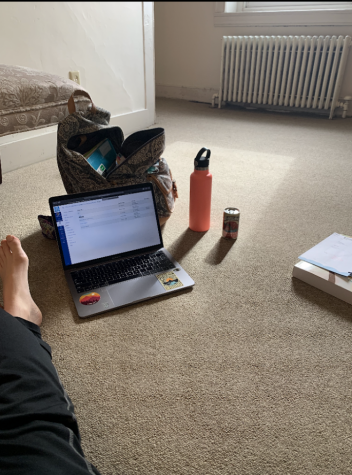How to Stay on a Specialty Diet in the Midst of a Pandemic
Grocery stores across the nation are finding themselves low on supplies in the midst of the coronavirus pandemic. This is causing stress for people across the country but even more so for people who are on specialty diets for health or personal reasons.
Being gluten-free, I found myself getting frustrated the last couple weeks because most of the foods I normally eat are in very limited supply or completely out of stock at the grocery stores in my area. As a result, I found myself looking for different substitutes to make sure I am still eating safely and healthy.
Below are several options you can utilize to stay on a specialty diet.
Stock up on long-lasting fruits and vegetables
Fruits and vegetables are a necessity in one’s diet and are usually safe in their natural forms for those on specialty diets. They are also still in stock in most grocery stores since they are difficult to buy in bulk.
However, some fruits and vegetables, like certain greens (spinach, kale, asparagus, snowpeas, etc) and berries, do not last long, which can make trips to the grocery store more frequent. Going for long-lasting fruits and vegetables such as root vegetables, cabbage, squash, apples, citrus fruits, potatoes, and carrots will lower your shopping trips , help you save money, , and keep you full for the next couple weeks. Here is a link for more long-lasting fruits and vegetables to look for in your grocery store.
Give baking a try
A lot of vegan, gluten-free, and lactose-free baked goods are extremely limited at the moment. I know that finding gluten-free bread has been a struggle. This is the perfect time to put your baking skills to the test!
While it might require specialty ingredients, hundreds of recipes online can give you ideas on how to bake breads, cakes, muffins, etc. A good website for specialty diet baking can be found here.
Additionally, if your grocery store is out of the special ingredients you need to make diet-friendly baked goods, consult this article for a list of substitutions. for them.
Try smaller grocery stores or head online
Many grocery stores that are not national chains may have a wider selection of specialty diet-friendly food, as they are usually smaller and do not sell out as easily.
Additionally, many online markets are finding themselves receiving more business than usual as people feel more comfortable shopping online and can find products easier. There are several online markets that specialize in diet-friendly products and usually have more options than a regular grocery store. Some local markets that are staying open during the pandemic can be found here.
However, if you opt for the online route, be aware of possible shipping delays. Many warehouses and postal services are either closed due to state mandates or are experiencing a high volume of packages.
Also, many online markets that sell groceries, such as Amazon, are becoming victims of “price-gouging.” This means that many users are selling products for significantly higher costs than normal due to the increase in demand.
Freeze leftovers and make larger meals
A great way to get the most out of your meals is to double the amount you make. You can freeze the leftovers, which then will be easy to reheat for several future meals. This also helps to cut down preparation time and allows you to get the most out of your ingredients.
Additionally, if only one person in your family or whomever you are quarantining with has special dietary restrictions, make sure they are the ones who are only eating the dietary-safe ingredients. This will help to save the products just for them since they are the ones who truly need it, which will cut down having to spend more money on dietary-friendly products in the future.
Be creative with substitutes
Other foods can be dietary-restriction-friendly and can be easier to find. Veggie products can make easy and delicious substitutes for pasta and hamburger buns. Using long strands of zucchini to make makeshift fettuccine noodles or using lettuce wraps for a hamburger bun can make great substitutes for any diet if those products are not available in stores.
Make meals that have low waste
While this can apply to anyone in this pandemic, making sure you use all of your ingredients, can ensure that you are getting the most out of your groceries. Especially with dietary restriction groceries, using everything when you are preparing a meal ensures that you can make safe meals in the future. For example, save meat bones or leftover vegetables in order to make diet-friendly stock for a future meal or use leftover fruits to make a smoothie.












